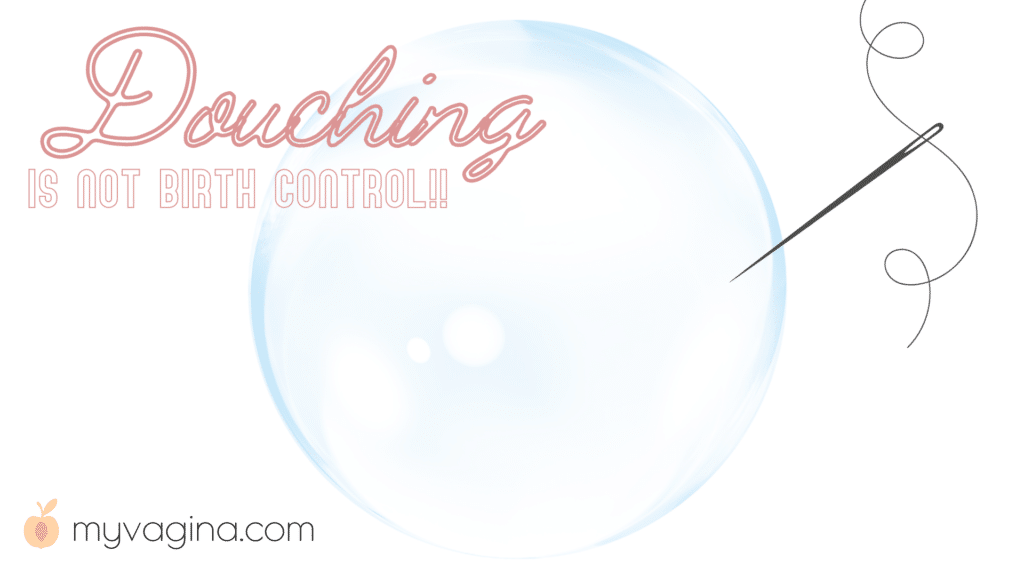Douching is not an effective form of birth control. By the time you get to the bathroom, at least one quick swimmer is likely already past the cervix, through your uterus, and on its way up to fertilise the egg in the fallopian tube (if you are near ovulating or ovulating).
Squirting water or other liquids into your vagina will wash away the remaining semen and sperm at best, but at worst, push more sperm up into your cervix.
The best way to avoid getting pregnant is not to let semen in the vagina when near or at ovulation, or use another form of birth control. Sperm can swim, and fast.
Douching can rinse away protective bacteria, can damage vaginal cells, and can leave you worse off.
Who started the rumour that douching prevented pregnancy?
Before the pill, diaphragms and condoms were invented, women had to get creative with how they avoided pregnancy. Douching was and is a popular form of birth control and a female ritual across many cultures: it’s cheap and easy to do, but it can come at a high cost in other ways.
Before the pill became available, douching was the most common form of birth control in the western world. Women had brands of antiseptic soap marketed as rinses to kill bacteria and odours, which turns out was secret code for killing sperm.
The most popular brand of vaginal douche was Lysol. The side effects could be terrible, poisoning was not unheard of, and by 1911, five women had died from ‘safe and gentle’ Lysol.
At one point in the 1950s and ’60s, Coca Cola was being used as a douche, but a 2008 study1 found that, for more than one reason, it would be ineffective.
In a 1992 study2, a specific brand of Nigerian fizzy bitter lemon drink was actually found to immobilise sperm within a minute. (Yes, people have studied this.)
Early studies (Cooper) around 1930 found that douching was not an effective method of birth control: in one cohort, 250 out of 507 women got pregnant after using the product. Not great odds.
References
- 1.Anderson DJ. Coca-Cola douches and contraception. BMJ. December 2008:a2873-a2873. doi:10.1136/bmj.a2873
- 2.Nwoha PU. The immobilization of all spermatozoa in vitro by bitter lemon drink and the effect of alkaline pH. Contraception. December 1992:537-542. doi:10.1016/0010-7824(92)90118-d
Get a fresh perspective with a qualified, experienced vulvovaginal specialist naturopath.
This product has multiple variants. The options may be chosen on the product pageThe most comprehensive vaginal microbiome test you can take at home, brought to you by world-leading vaginal microbiome scientists at Juno Bio.
Easy-to-use BV and AV treatment program.
Promote and support a protective vaginal microbiome with tailored probiotic species.






